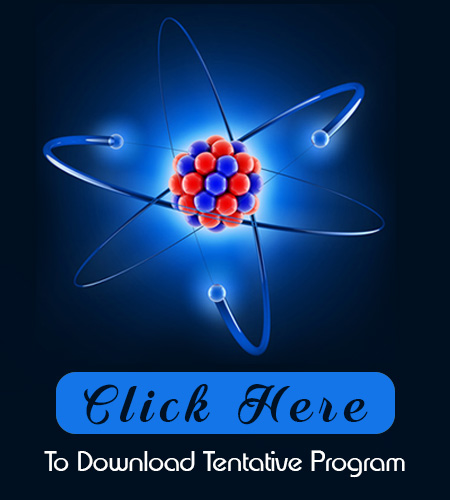
Alain Ghizzo
University of Lorraine, France
Title: Kinetic waves induced by electron trapping in stimulated Raman scattering in laser-plasma interaction
Biography
Biography: Alain Ghizzo
Abstract
The influence of low-frequency waves of kinetic nature induced by electron trapping in backward stimulated Raman scattering is investigated. The kinetic theory of periodic electron hole equilibrium or phase space vortices is a long-standing problem in plasma physics. Since the pioneering work of Bernstein, Greene and Kruskal in 1957 it is now well-known that such phase space holes are self-sustained and connected to electrostatic fields that are self-consistent with some manner of trapped particle velocity distribution function. Trident laser-plasma interaction experiments, that revealed that such electron trapping structures might conceivably be physically relevant, have led to renewed interest in the research of such trapping structures. These experiments were aimed at improving our knowledge of stimulated Raman scattering (SRS) from electron plasma waves (EPWs) from a single speckle of laser light and employed laser scattering as a key diagnosis (in particular in optical mixing experiment). An extremely surprising result was the presence of a second very weak scattering signal which was only a modest fraction (0.37) of the plasma frequency in addition to the expected EPW scattering signal. This unexpected signal was associated with what was termed Stimulated Electron Acoustic Scattering (SEAS), a novel scattering involving a so-called electron acoustic wave (EAW), whose nature is nonlinear and kinetic. In such experiments, Raman scattering enters in the so-called kinetic regime of the instability. To explore the physics of such generation and to make contact with a possible laboratory experiment, a semi-Lagrangian kinetic Vlasov-Maxwell code is used which allows very fine details of the particle-wave resonance. We address here the results of numerical experiments leading to the generation of self-sustained low frequency kinetic electrostatic electron nonlinear (KEEN) waves starting initial collision less Maxwellian plasma in an appropriate computer model for the one-dimensional system. Then we investigate the interaction of such created KEEN waves with the laser wave showing the possibility of interaction of such quasi-particles with electromagnetic wave.

